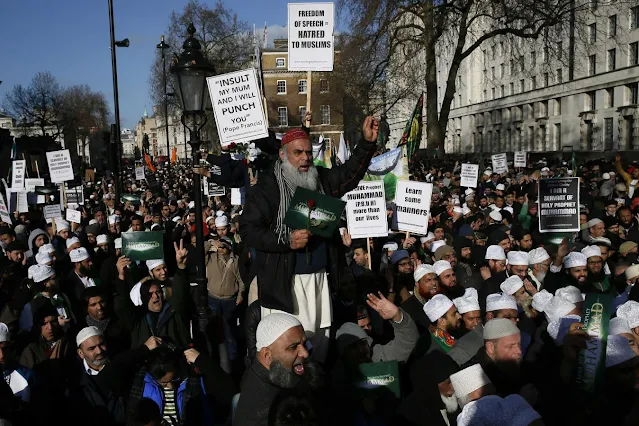Mass retaliatory attacks follow the “promotion” of nationalism and anti-Arab sentiment by the extreme right

By Harsh Thakor*
In recent days, chaos has reigned on England’s streets as groups carrying national flags confronted police, set fire to buildings and blocked roads with barricades. These actions are being led by far-right extremists who have adopted the rhetoric of popular uprising and are stoking nationalism and anti-Arab sentiment.
On 4 August, a group attacked a refugee centre in Rotherham, smashing windows and attempting to set fire to the building. Another attack took place at an immigrant centre in Tamsworth. The violence appears to be coordinated by various far-right leaders, commentators and organisations pushing a dangerous nationalist agenda.
The real cause of the problems facing working people in Britain lies not with immigrants but with the capitalist system itself. For many Muslims and people of colour in Britain, recent unrest led by far-right groups has stoked feelings of insecurity in a country they once called home.
Popular protests
In response, a significant popular uprising emerged, particularly marked by revolutionary elements advocating for transformative social change. On 8 August, thousands took to the streets to oppose far-right groups, rallying around the powerful message: “We are much more than them.” Demonstrations in places such as north London, Bristol and Newcastle were largely peaceful, with counter-protesters clearly declaring: “Refugees are welcome here.”

Anticipating further violence, police deployed thousands of officers to monitor over 100 planned events. The wave of counter-protests across the UK reflects a growing resistance to racism and aims to protect refugees, Muslims and other marginalised groups from a resurgence of racist violence.
A key figure in stoking these tensions is Tommy Robinson, an anti-Islam activist who falsely claimed that the original attack was carried out by a Muslim. He exploited public outrage and suggested that organisations such as Hamas and Islamic State – two very different groups – were plotting to take over London.
But such attacks reflect deeper societal problems, not just external threats. Britain’s deepening social crisis, characterised by growing misery, exploitation and crumbling social bonds, has paved the way for regressive ideologies and given rise to even more hatred.
Shifting the blame
The ruling class has long used the tactic of “divide and rule” to distract the working population from the real causes of their struggles. It is not immigrants, but years of austerity that have led to the dismantling of public services.
Likewise, large corporations and multinational companies are responsible for unemployment and low wages, not immigrants. The real culprits in the housing crisis are property speculators and landlords, not the immigrant population.

